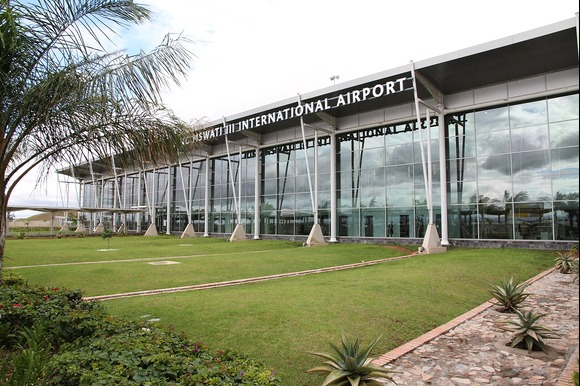The United States has deported five individuals, described by officials as “criminal illegal aliens,” to the southern African kingdom of Eswatini, raising concerns over the country’s role in third-country deportation arrangements and sparking domestic and international debate.
According to Tricia McLaughlin, Assistant Secretary at the U.S. Department of Homeland Security, the deportees were nationals of Vietnam, Jamaica, Laos, Cuba, and Yemen. They had all been convicted of serious crimes in the U.S., including child rape and murder.
“This flight took individuals so uniquely barbaric that their home countries refused to take them back,” McLaughlin wrote in a post on X (formerly Twitter), referring to the deportation flight that recently landed in Eswatini. “A safe third country deportation flight to Eswatini in Southern Africa has landed. They are off of American soil,” she added, listing the deportees’ offenses and calling them “depraved monsters” who had been “terrorizing American communities.”
In response to the deportations, Eswatini’s government acknowledged growing domestic concern and confirmed that the five individuals are being housed in isolated units within the country’s correctional system. “Five inmates are currently housed in our correctional facilities in isolated units, where similar offenders are kept. The nation is assured that these inmates pose no threat to the country or its citizens,” government spokesperson Thabile Mdluli said in a statement.
Mdluli also noted that Eswatini, in collaboration with the U.S. and the United Nations’ immigration agency, would work to “facilitate the transit” of the deportees to their countries of origin. However, it remains unclear whether any financial arrangements were made between the U.S. and Eswatini as part of the deal.
The deportation has triggered criticism from civil society groups within Eswatini. The Swazi Solidarity Network, a pro-democracy organization, condemned the agreement and called for greater protection of local citizens. “Eswatini must not become a dumping ground for criminals,” spokesperson Lucky Lukhele said in an interview with the BBC.
Public concern is growing over whether Eswatini’s correctional infrastructure is capable of securely detaining such high-risk individuals, given the severity of their crimes.
This move is part of a broader strategy by the Trump administration to expand deportations, even to countries where the deportees have no direct ties. Earlier this month, the U.S. deported eight men to South Sudan, despite only one of them being a national of that country. The deportees were placed in a civilian facility in Juba, the capital, under the supervision of police and national security officials. South Sudan confirmed that the men were not handcuffed and appeared to be in good condition.
Last month, the U.S. Supreme Court ruled in favor of the Trump administration’s policy allowing deportations to third countries, effectively lifting restrictions on such practices. The decision has paved the way for further deportations to countries that have no prior connection to the individuals being expelled.
Rwanda has acknowledged discussions with the U.S. on accepting deportees, while media reports suggest that Angola, Benin, Equatorial Guinea, and Moldova are also being considered as future destinations. In previous months, deportations have already taken place to El Salvador and Costa Rica.
The policy has drawn criticism from multiple quarters, including Nigeria, which recently announced it would not accept deportees from Venezuela or third-country nationals being sent from the U.S. In contrast, some nations have complied. In April, U.S. Secretary of State Marco Rubio revoked all U.S. visas held by South Sudanese nationals, citing the country’s failure to accept the return of its citizens in a “timely manner.” It is unclear whether that situation has since improved.
Eswatini, a small, landlocked nation bordered by South Africa and Mozambique, has been ruled by King Mswati III since 1986 and remains Africa’s last absolute monarchy. Formerly known as Swaziland, the country’s most significant export is sugar, with the U.S. ranking as its fourth-largest market. Analysts suggest that Eswatini may be cooperating with Washington in an effort to protect its trade interests and avoid the imposition of tariffs.
Trump’s campaign promise to carry out mass deportations was a cornerstone of his election platform and continues to resonate with a significant segment of his political base, including some Hispanic voters. While initially framed as a crackdown on undocumented immigrants, the administration’s efforts have gone much further. Policies have targeted individuals on student visas, revoked protections granted to refugees, suspended most refugee admissions except for white South Africans, and moved to eliminate temporary work permits issued by previous administrations.
As part of the intensified immigration enforcement, U.S. authorities have resumed workplace raids—tactics that had been suspended under President Joe Biden—signaling a renewed push to identify, detain, and deport foreign nationals, regardless of nationality or direct links to receiving countries.






